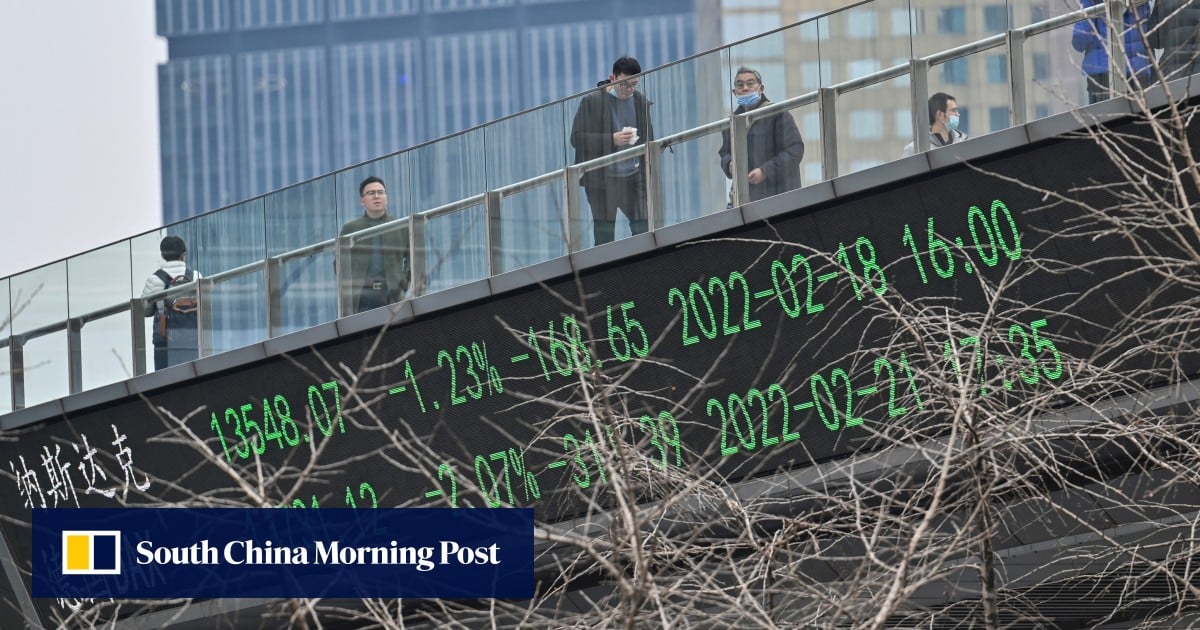
05 Mar Goldman Sachs wealth-management executive warns against buying Chinese stocks, citing tepid growth, opaque policy
A top executive with Goldman Sachs Wealth Management has warned against investing in Chinese stocks, hinting at ongoing jitters among foreign investors even as both onshore and offshore shares show nascent signs of stabilisation amid state support and growing foreign inflows.
Sharmin Mossavar-Rahmani, the chief investment officer of Goldman’s wealth-management business, said in an interview with Bloomberg News that she would not advise high-net-worth clients to buy Chinese stocks, citing moderation in growth, opaque policymaking and doubts over the authenticity of economic data as reasons.

The CSI 300 Index has rebounded 12 per cent after hitting its lowest level in five years in early February, and the Hang Seng Index has risen about 5 per cent over the past month.
Mossavar-Rahmani’s bearish call on Chinese stocks reflects jitters among overseas investors about the dire outlook for the mainland China economy, which is struggling with headwinds from a protracted downturn in the property market, weak consumer spending and demographic change.
More policy easing, demand-side stimulus measures, plans to boost confidence in the private sector and an improvement in China-US ties will be needed to sustain the rally sparked by the state’s tactics thus far, the US bank said in a research note over the weekend.
Goldman did not respond to a request by the Post seeking comment.
China small-cap stocks rally after state rescue package
China small-cap stocks rally after state rescue package
At the same time, China has been tightening its grip on analyst comments issued by both domestic and overseas investment banks that may sway the market and influence the nation’s 220 million individual investors.
JPMorgan was removed from a list of key underwriters for the Hong Kong initial public offer by Kingsoft Cloud Holdings after it cut the price target on the company’s US-listed shares by half as part of a flurry of downgrades following its bearish call.
